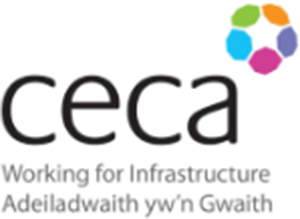Economy, Infrastructure and Skills Committee, National Assembly for Wales
Evidence from the Civil Engineering Contractors Association (CECA) Wales
Summary of Responses
The state of roads in Wales has been a constant source of frustration for our sector and, therefore, we welcome this Inquiry. We also hope that it represents an opportunity to address the chronic under-investment in this sector and to explore ways of better utilising the investment that is made to deliver far greater value for money.
The inquiry is focusing on :
- The condition and approach to maintenance of the local road, trunk road and motorway network;
- Delivery of enhancement projects on the local road, trunk road and motorway network;
- Benefits of alternative forms of procurement; and
- How far the approaches taken to highway maintenance and improvement are sustainable.
The response from CECA Wales is confined to these 3 areas and is summarised into the key observations, issues and potential solutions as follows :
1.The condition and approach to maintenance of the local road, trunk road and motorway network
Key observations and issues :
- Good understanding of the condition of highways and investment needed
- Long-term under investment, particularly on lower category roads
- Poor investment profiling, leading to poor use of funds (“mad March” scenarios)
Potential solutions :
- Increased investment – unlikely under current public austerity measures
- Continued assessment of road conditions and preparation of asset management plans
- 3-5 year funding commitments linked to rolling programmes of work
2.The delivery of enhancement projects on the local road, trunk road and motorway network
Key observations and issues :
- Poor procurement practices (despite some “best practice” procurers)
- “lowest price” tenders dominating along with an increase in open tenders;
- a desire to transfer all-risks to the supply chains;
- an increasingly bureaucratic process led by fewer people with relevant experience of the infrastructure sector; and
- a diminishing level of engagement between suppliers and procurers.
- Highly variable procurement practices across Wales
- Slow decision making
- building more risk into projects which are inevitably passed on in the overall project cost;
- affecting continuity of employment, training and upskilling as contractors cannot indefinitely hold onto people as they await decisions; and
- impacting on business opportunities for local supply chains who may move elsewhere or simply collapse.
Potential solutions :
- Specialist procurement teams focusing on
- Value not cost
- Better management of risk
- Improving competency of procurers
- Improved communication
- Improve understanding of implications of slow decision making on cost, time, quality and value for money
3.Benefits of “Alternative” Forms of Procurement – in delivering major highway projects
Key observations and issues :
- “Alternative” forms of procurement are essential in certain scenarios
- Lack of understanding of these “alternatives” by many procurers
- Poor implementation
Potential solutions :
- Specialist infrastructure procurement teams to deliver “complex” projects
- Improve competencies of procurers more generally across the infrastructure sector
4.How far the approaches taken to highway maintenance and improvement are sustainable.
Key observations and issues :
- Recent introduction of key Welsh legislation are nowhere near being fully embedded across the sector
- Potential for cultural resistance to change within the sector as historic focus has always been on economic “value” – the same is true of project “funders”
- Potential opportunities to increase social value via Welsh suppliers/contractors, multi-agency approaches and longer term planning
Potential solutions :
- Responsibility of all to raise awareness and develop sector specific technical guidance
- Radical change needed in funding mechanisms to reflect new legislation and focus on long term/whole life costs – shift to 3-5 year funding programmes
- Justify expenditure on value/wellbeing goals rather than cost alone
- Greater engagement of the civil engineering contracting sector by procurers to test opportunities via the procurement process.
Ed Evans is Director of the Civil Engineering Contractors Association (CECA) Wales Cymru.
CECA Wales Cymru represents 60 of Wales’ largest and smallest civil engineering contracting businesses with a cumulative annual turnover in excess of £1bn and employing over 6,000 people. These businesses play a huge part in supporting communities across Wales and make a significant contribution to the economic prosperity of our nation. Our members are also major providers of training and apprenticeship opportunities.
On a more fundamental level it is our members who will build the infrastructure that our nation needs to prosper.

